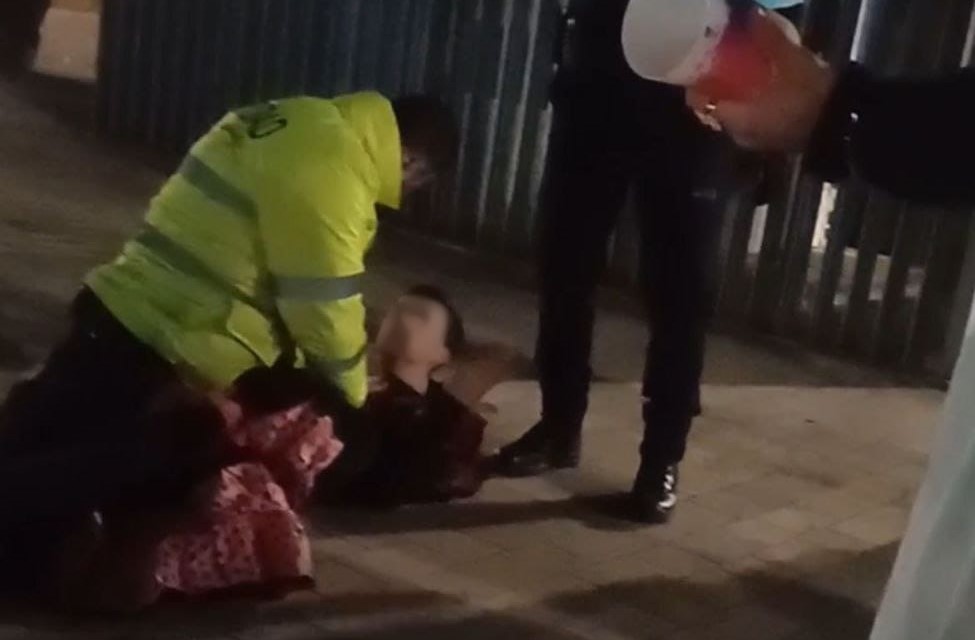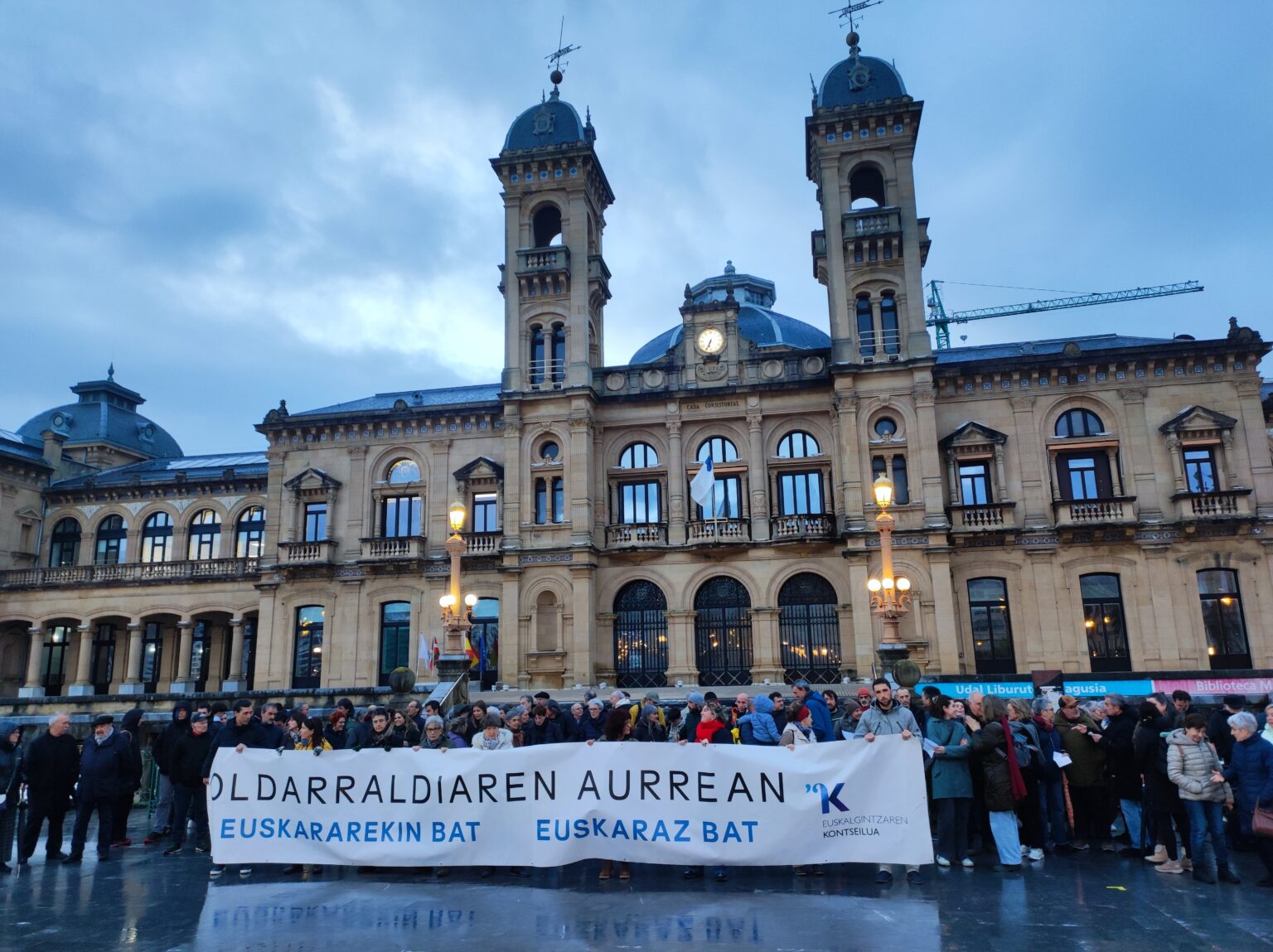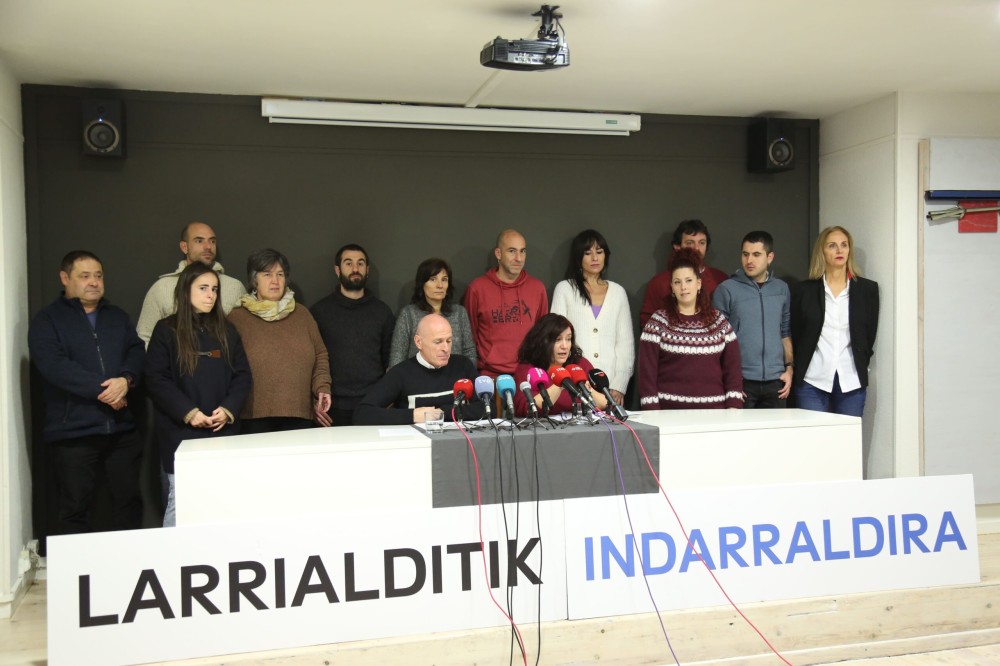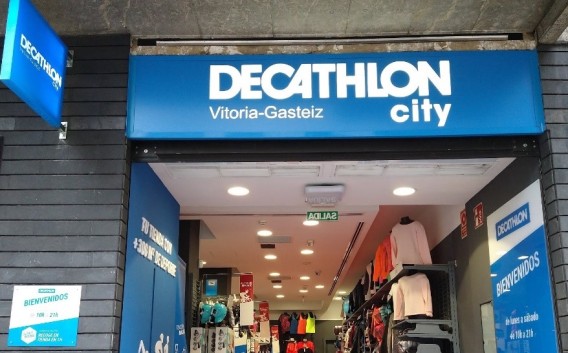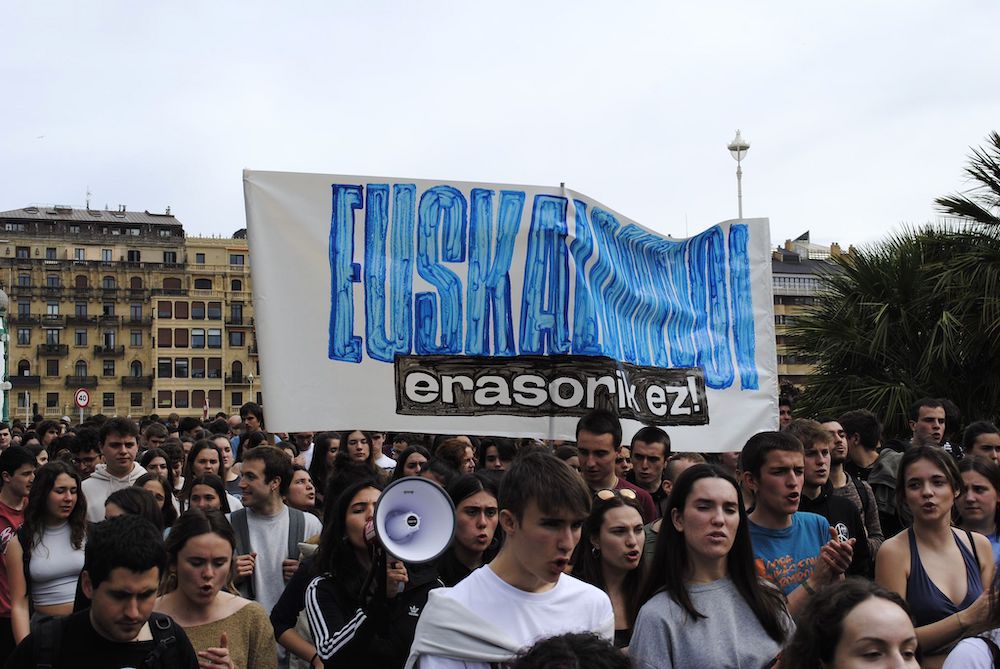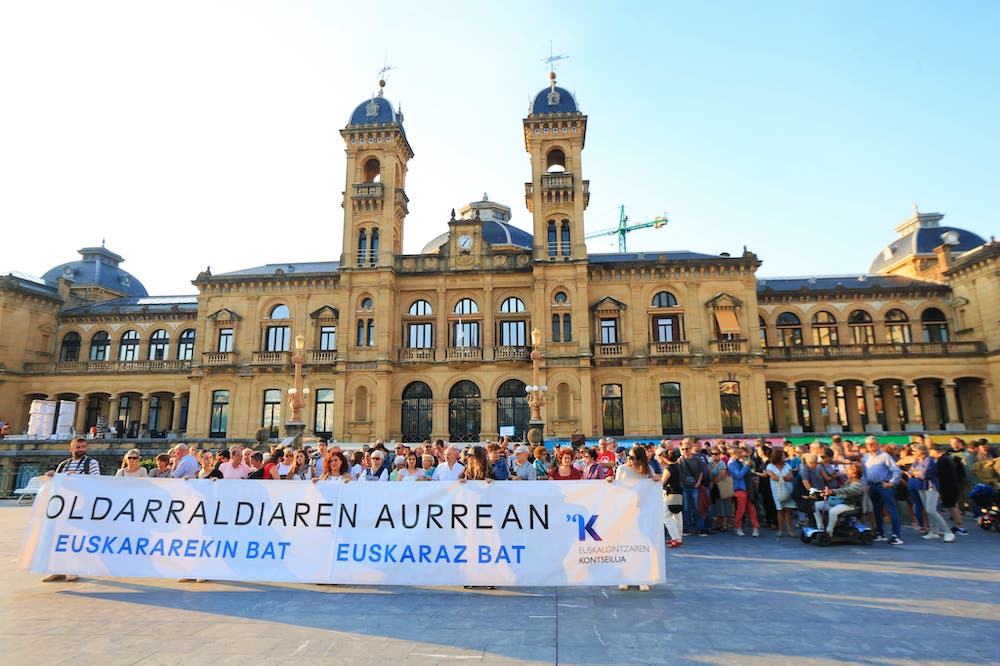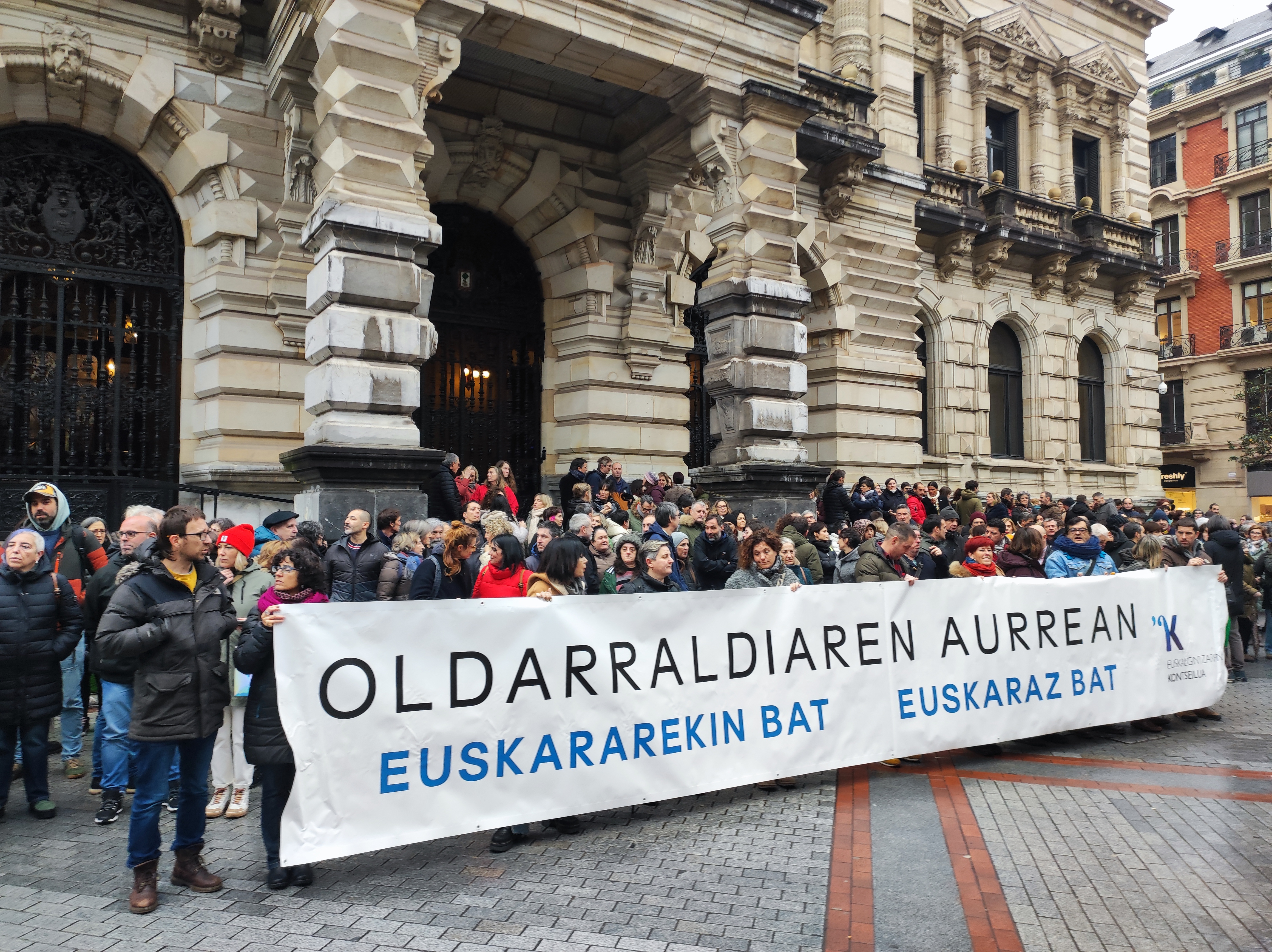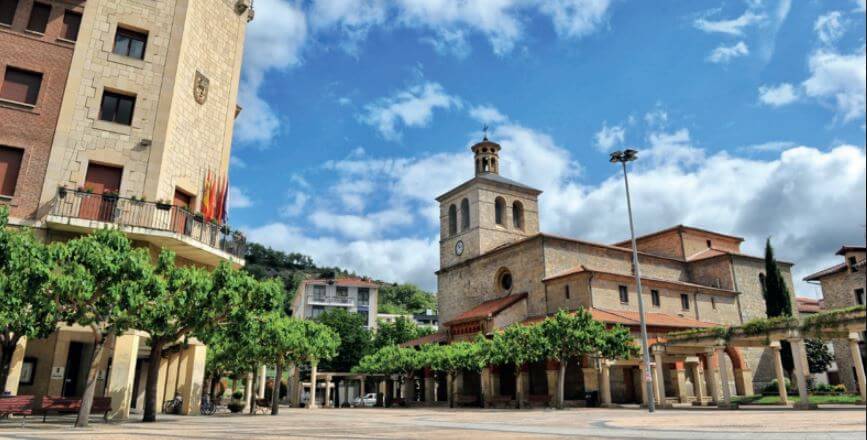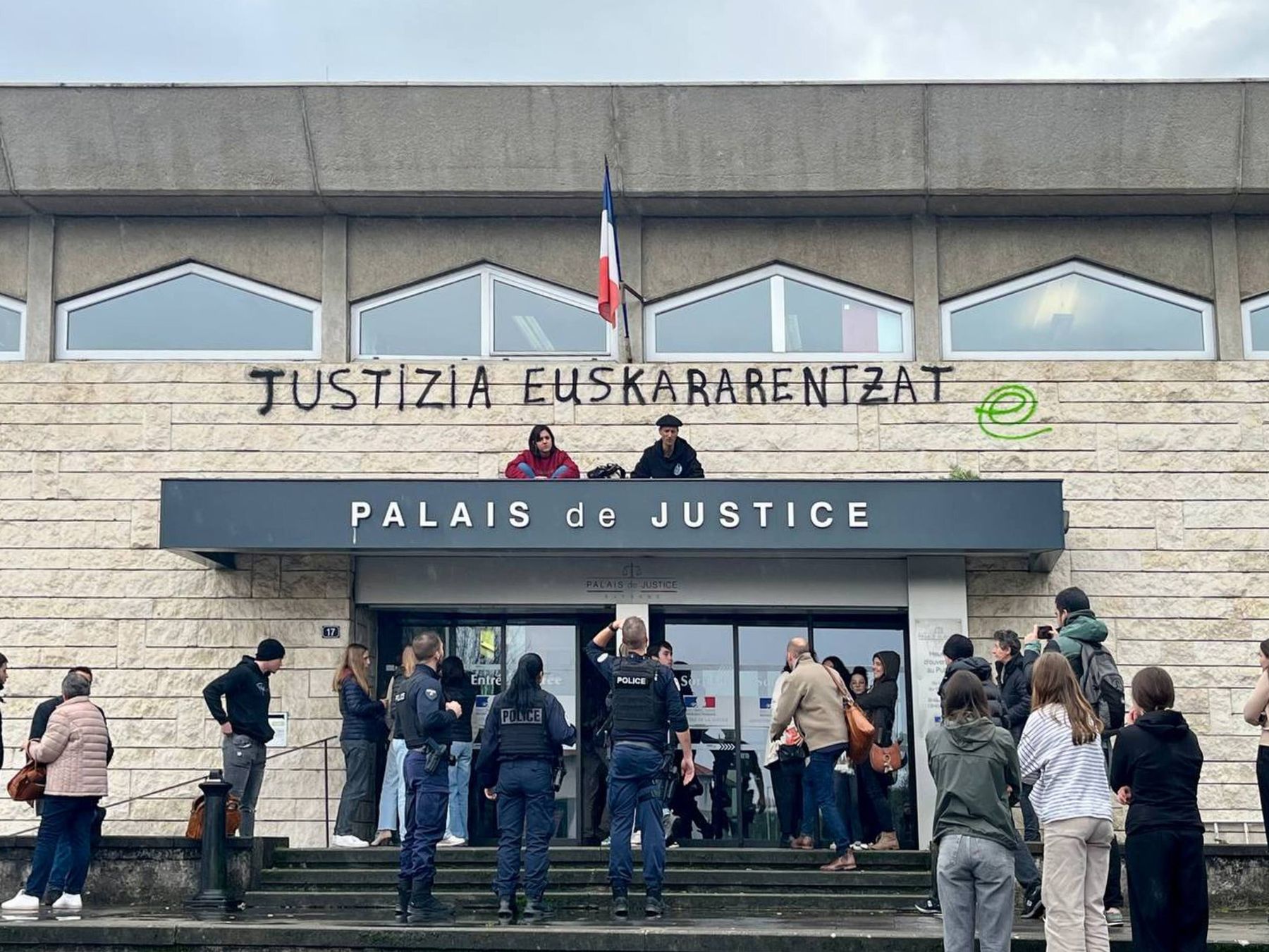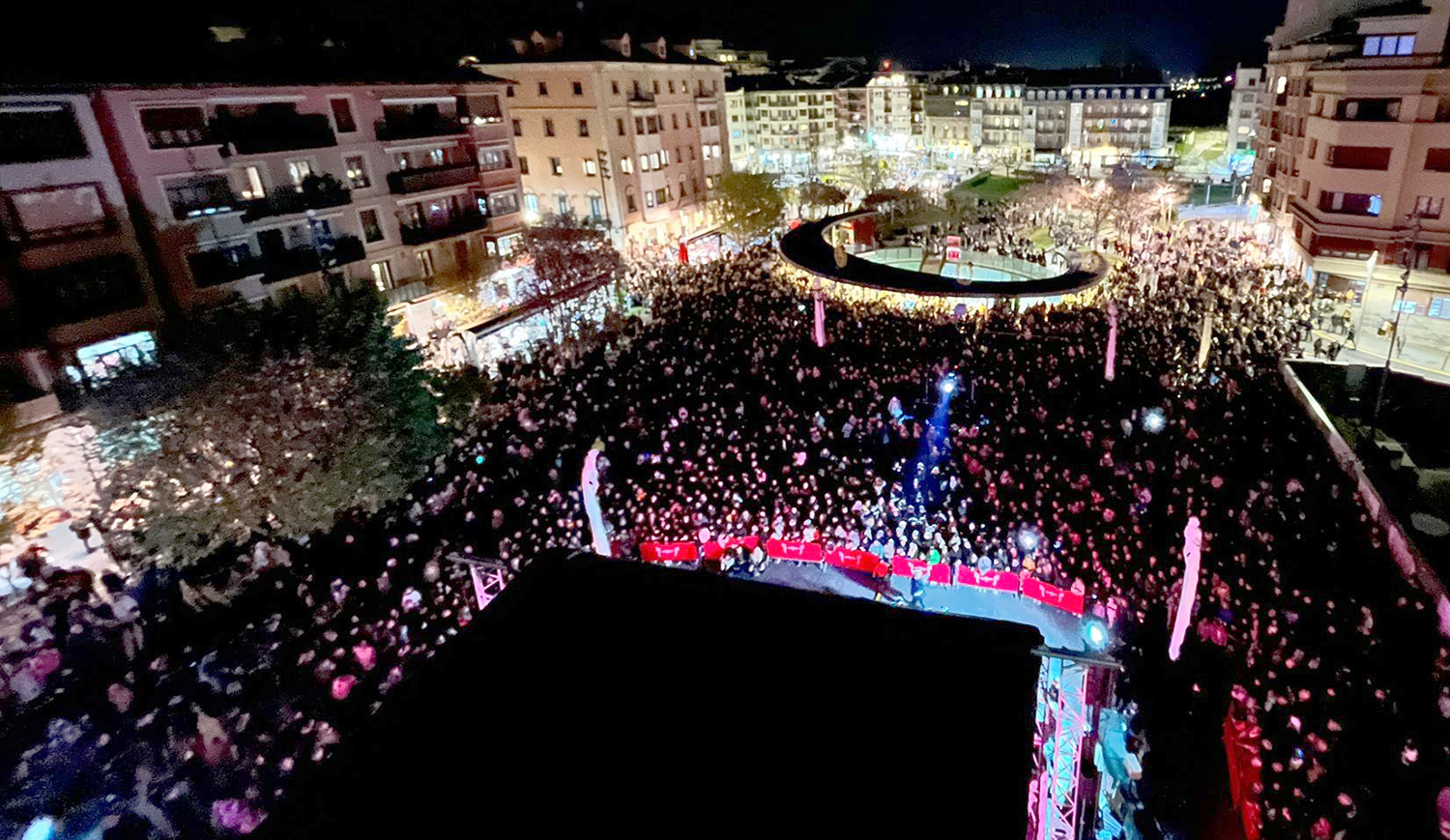The Council calls for compliance with the streets of Bilbao by the Basque Country and the rights to judicial aggression
- On Saturday there will be the demonstration promoted by the Council and Basque cultural activity, under the slogan Oldarraldia, in Basque. The Council awaits thousands of people in Bilbao and recalls the reasons for their attendance at Tuesday’s hearing. In addition to the defence of Euskera and Euskaldunes, it has called for the rights and equality of all citizens.

Before the Euskalduna Palace in Bilbao, the Council of Euskalgintza recalled that last May it made public the demonstration on 4 November to deal with the "judicial aggression" against the Basques. Since then, Council Secretary-General Idurre Eskisabel has assured us that there has been no more than "aggravating" the reasons for the judicial demonstration. In this chain of reasons would be the last ruling of the High Court of Justice of the Basque Country against the Municipal Law. "We say and are saying: the situation is serious."
He says that sentences of recent months and years have a common feature: "The instruments for making language policy and public policies for the Basque people are being dismantled." He denounces that the latest rulings have taken this path to the "extreme", "to the point of making it clear that it is not for the municipalities to plan linguistics". The representative of the Council recalls that the law itself states that Euskera is a minority language and therefore needs support. On the contrary, he says that language and labour rights are being opposed by the courts, arguing against: "These rights are complementary and reinforcing."
Three reasons to go to Bilbao
Eskisabel has summoned all the citizens to go to Bilbao on Saturday, highlighting three reasons. First, he warns that "the judiciary is doing linguistic policy" and that this is "very serious". Secondly, he explains that through the rulings institutions are being removed from the tools to make "public policies" for the Basque country, which is an "obstacle to linguistic normalization". When the Basque needs more momentum in these times: "With globalization, with digitalization -- all minority languages have great challenges, and the tools we have now become obtuse; when we need stronger ones, we also lose those few we have."
Finally, the Council states that Euskera is a matter for the whole of society and not just for the Basques: "We want to focus citizens' rights." He explains that fighting against Euskera conditions the "linguistic rights" and "everyday life" of the Basques, but that, beyond that, it means fighting "social cohesion", "social justice and coexistence". That is why, in general, it invites the demonstration "all citizens who believe in equality".
Thousands of people wait
The Council is optimistic about the demonstration, explaining that more than 40 buses have already been arranged to go to different towns and cities and that they expect thousands of people to be brought together. The demonstration will take place at 17:00 from the Euskalduna Palace in Bilbao and the main banner will be hosted by representatives of the Council and the Basque sector, who have appeared today at a press conference.
The demonstration will end with an act in which, among other things, a collective sokadantza will be held, symbolizing the collaboration in favor of the Basque country. The dance will be directed by the dance group Duguna de Pamplona, with the collaboration of several musicians. Eskisabel proposes to citizens to search and learn the tutorials of sokadantza on the internet, "it is very easy", to dance together on Saturday.
Euskal Herrian Euskarazen arabera, Tolosako tren geltokiko segurtasun agente batek eraso egin zion militante bati, agenteari euskaraz hitz egiteko eskatu ziolako. Tolosako alkateak "kezka" adierazi du eta azalpenak eskatuko dituela jakinarazi.
Euskalgintzaren Kontseiluak eta Bizkaiko Foru Aldundiko langileak elkarretaratzea egin dute langileen egonkortzearen eta euskalduntzearen alde.








